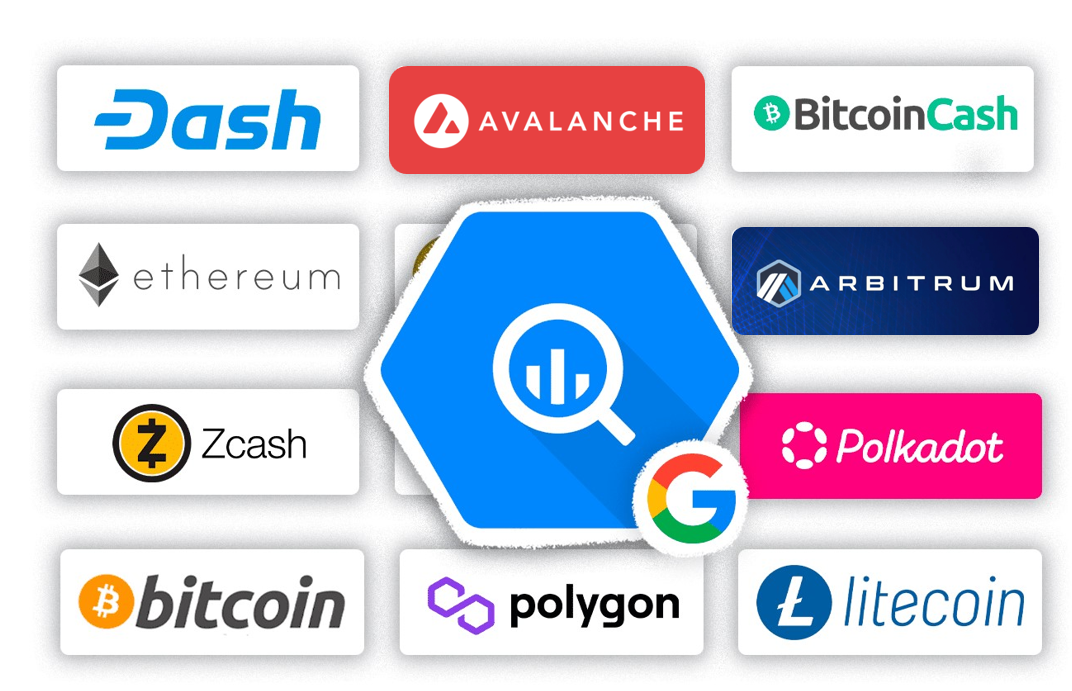
Google Cloud has expanded the functionality of its BigQuery data analytics service by adding support for 11 additional blockchains. This means that users can now run complex queries drawing on public data from a total of 19 different chains.
The newly supported chains are: Arbitrum, Avalanche, Cronos, Fantom, Near, Optimism, Polkadot, Polygon and Tron, along with the test networks Polygon Mumbai and Ethereum Goerli.
BigQuery is a “fully managed, serverless data warehouse that enables scalable analysis over petabytes of data.” It was first announced in 2010, and became generally available in late 2011, according to Wikipedia.
Google added blockchain data services in 2018, initially enabling access to just the Bitcoin and Ethereum blockchains. Support for six more chains (Bitcoin Cash, Dash, Dogecoin, Ethereum Classic, Litecoin and Zcash) was added the following year.
With a BigQuery subscription, users can use a form of Structured Query Language (SQL) to craft intricate inquiries, which draw information from multiple sources (and petabytes of data) to provide results in minutes. The support for 19 popular blockchains further extends the utility of this feature.
For example, queries could be made comparing transaction and smart contract fees across various blockchains, or collating transaction types and value over time.
BigQuery puts Google in competition with dedicated blockchain analytics companies such as Chainalysis, Nansen, and Dune Analytics, along with newer companies specializing in areas such as decentralized finance like DeFi Llama.
While the audience targeted by these different platforms varies from retail investors to institutions and law enforcement operatives, the use of SQL may make Google Cloud’s offering more accessible to less crypto-savvy corporations.
Google Cloud has been eager to attract Web3 businesses to its platform. As we Observed earlier this month, the company recently opened an office in El Salvador following the country’s successful implementation of its Bitcoin strategy. The company also offers infrastructure services such as node hosting on certain blockchains.
However, there continue to be concerns about decentralized technologies such as blockchain relying on centralized service providers such Google. This potentially leaves them vulnerable to policy changes by the provider (for instance, if pressured by government agencies - we’re looking at you SEC), and creates a single point of failure that could be more easily targeted by hackers.
Just this week, we witnessed the loss of $200 million from the Mixin Network, which was allegedly down to a cyberattack on Google Cloud, the network's cloud service provider.
However, even when a blockchain is supposedly fully decentralized and nodes are easy and inexpensive enough to run by individual machines, many of the web pages and interfaces used to interact with the platforms may still be hosted on centralized services.
Security is only ever as secure as the weakest link in the chain, and for the foreseeable future, that weakest link may remain off-chain.
